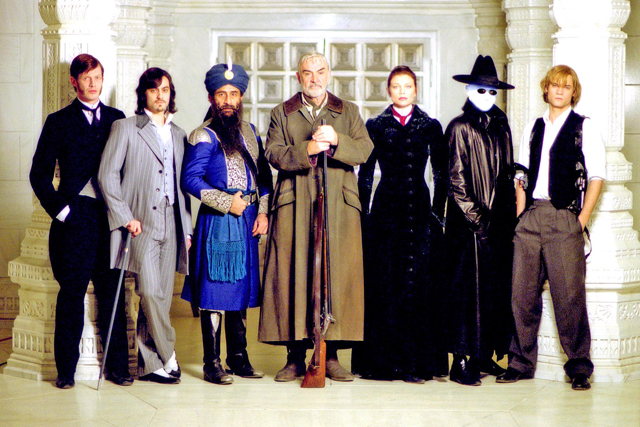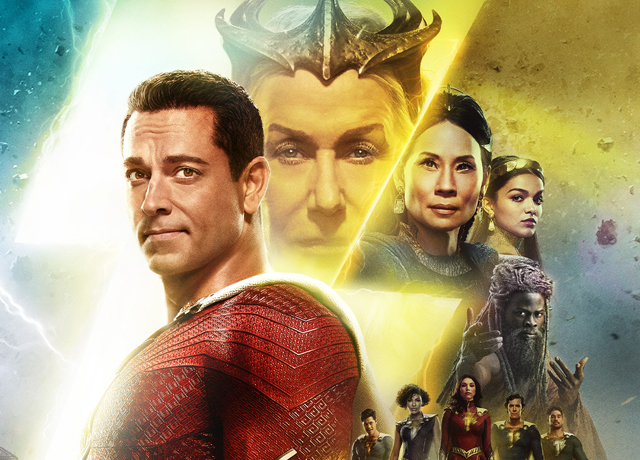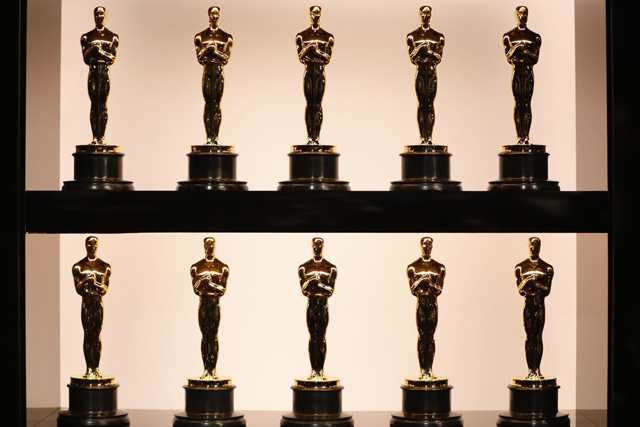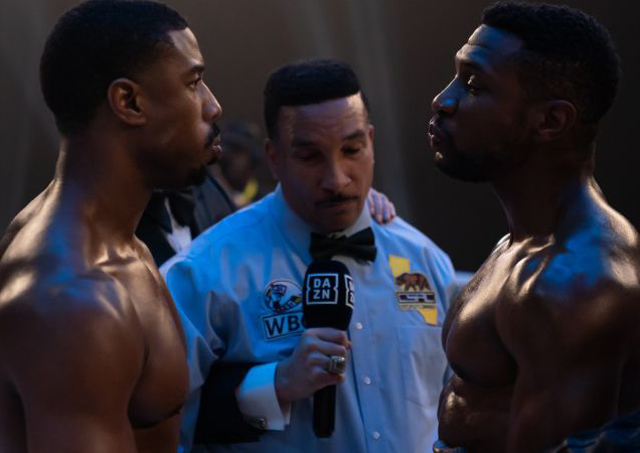
Cinema right now is being driven by a creative indulgence in expressing a vast knowledge of other media with the stories we are telling now. Movies today are playing to an audience that is very much savvy about existing canons and continuing storylines across multiple stand alone projects, something that has definitely been driven by the rise of comic book movies in the last decade. What were once Easter eggs in movies have now become seeds for future narratives, with even the most obscure of references blossoming into feature attractions. Certainly Marvel Studios and their cinematic universe has executed this kind of long form storytelling to it’s fullest potential, creating the most successful franchise in movie history. But the same kind of connected universe storytelling extends into even more surprising places in our current cinematic environment. Recently christened Best Picture winner at the Academy Awards, Everything Everywhere All at Once (2022), also plays upon the pop culture knowledge of it’s audience to imagine different creative universes within it’s multi-versal story that includes references to the movies of Wong Kar-Wai and Pixar’s Ratatouille (2007). But while cinema is only just now beginning to dive into this craze of combining universes together, the same thing has already been going on for decades in the comic books. Not only have Marvel Comics and DC Comics been bringing their vast collections of characters together in event comics centered around the Avengers and Justice League teams respectively, but the two rivals have come together a number of times and had cross-over comics where their respective heroes and villains join forces. Imagine what that would look like on the big screen. But, what works on the comic book page doesn’t necessarily work all the time in movies. Often when you are pulling multiple different characters together, all of whom are the centerpiece of their own stories, you also have to bring in the baggage of their continuing narratives as well, and it can sometimes make the story a tad bit messy. There was a case back in the early 2000’s where Hollywood did try to create a shared universe super team, based on another comic book as it so happens, and it not only bombed, but it nearly killed the comic book movie genre in general and ended the careers of several industry veterans as a result.
That infamous movie was the 2003 adaptation of the comic book series The League of Extraordinary Gentleman. The movie was based on a series of comic books written by the legendary Alan Moore. Moore is an interesting figure within the comic book industry. As a writer, he is often critical of the conventions of comic book storytelling while at the same time participating in that same medium. His work often subverts the tropes of comic book stories, like his most famous work Watchman, which deconstructs super heroes and their place in society. His work has been so well received by the comic book community over the years that even big publishers have given him the chance of writing stories for their most iconic characters. And, he has taken those opportunities to craft some of the best storylines in comic book history as a result. Working primarily with DC Comics, he is responsible for one of the greatest Batman stories, The Killing Joke, and one of the best Superman stories, For the Man Who Has Everything. But perhaps his most divisive work has been one that has deconstructed the idea of super teams like the Avengers and the Justice League, which is The League of Extraordinary Gentleman. The league in question is not team up of various comic book heroes, but is instead a collection of characters from literary sources of all eras. This is a comic book series where Captain Nemo teams up with Dr. Jekyll and the Invisible Man, and several other characters from famous literary works, forming yet another society of heroes to take on evil forces, which again, are also from various works of literature. While this does seem like a fun idea for a comic book series, in Alan Moore’s hands, it is anything but that. The League of Extraordinary Gentleman is very much a subversive novel, and definitely not for kids, as graphic violence and sexual situations are litter very liberally throughout the pages of the comic book. At the same time, Moore is deconstructing the meaning of these classic characters, with a critical eye for how literary canons have shaped society in general. Of course, the series that Alan Moore envisioned with his take on super hero team-ups doesn’t exactly lend itself generously to cinematic adaptation, but that didn’t stop Hollywood.
The early 2000’s was an interesting time for comic book movies. On the one hand, you could see a falling out with audiences who had seen the genre fall flat on it’s face due to ridiculous commercialized fair like DC’s Batman and Robin (1997). At the same time, we were also seeing the emergence of more mature movie adaptations that would go on to influence what the Marvel Cinematic Universe would eventually become, like Sam Raimi’s Spider-Man (2002) and Bryan Singer’s X-Men (2000). In the midst of this came the movie adaptation of Alan Moore’s first two volumes of his League of Extraordinary Gentleman. 20th Century Fox held the rights to the comic book series, which Moore had published independently through ABC Comics, and they were intending to turn it into it’s own franchise to compete with the likes of the DC’s and the Marvel’s (though Fox was also stewards of the X-Men and Fantastic Four as well). Though the movie does retain the core concept of Moore’s comic book series as well as some of the core characters that make u up the team, the similarities end there. The film just fall into the same stock action tropes of every other other comic book movie at the time and leaves out the sharp witted commentary of Alan Moore’s writing. It basically betrays what Alan Moore intended by becoming the very thing that it was meant to critique. But that’s not exactly new for comic book movie adaptations. And it is not the worst thing about the movie either. It was obvious that Alan Moore’s League of Extraordinary Gentleman would be Hollywood-ized to oblivion, but the way it was makes it even more of a colossal failure than anyone would’ve expected.
It is very clear from the get go that the movie League of Extraordinary Gentleman focuses way too much on trying to appear cool without ever earning it. The term that is most used to describe the style of this movie is Dieselpunk, which is retro-futuristic. Think the image of the future that was imagined in the early 20th century, with diesel-based locomotion being the basis for aesthetics in everything from architecture to apparel, much like it’s spiritual cousin Steampunk. As a result, the whole movie is murky and drowned out in this silvery sheen that makes the whole movie visually unappealing. There are a lot of scenes that take place at night or in dark spaces, likely to hide the lackluster CGI effects, which definitely have not aged well. And in addition to having the visual aesthetic and effects being hard to look at, the movie also dispenses with logic in order to make their ridiculous ideas work. Case in point, a whole section of the movie that takes place in Venice, Italy. We are introduced earlier in the movie to the Nautilus, the massive submarine transport of one of the league members, Captain Nemo. In the movie, we are shown that the Nautilus is over a hundred feet in height when brought to the surface, and yet we also see the vessel traveling the canals of Venice, under it’s many bridges, which anyone with a brain knows is a city built in a lagoon with very shallow water. The Nautilus being able to navigate like it does in the movie through Venice makes absolutely no sense. Even more ridiculous, the heroes in the film also are involved in a car chase in the very same location. I’ll excuse the movie for having Captain Nemo inventing the car long before Henry Ford created his first Model T; that’s an acceptable creative license. But to have the car chase take place in Venice, a city without roads is far too absurd and illogical. It’s clear that the filmmakers of this movie just wanted a car chase in their film and they didn’t care how they would make it happen. They put it in there, because it’s a standard trope of comic book action movies.
There are a lot of other instances where it’s clear that the filmmakers are more interested in pandering to an audience rather than delivering a more interesting story. This can also be found in the casting of it’s characters. The movie does retain some of Alan Moore’s core characters, including Alan Quartermain (played by the legendary Sean Connery), Captain Nemo (Naseeruddin Shah), Mina Harker (Peta Wilson) and Dr. Jekyll and Mr. Hyde (both played by Jason Flemyng). In some cases, the casting of these characters is fine; Flemyng actually gives the film’s best performance in his dual role and I give credit to the movie for casting an actual Indian actor in the role of Nemo, which is true to Moore’s comic and also to the original text from Jules Verne. But, some of the changes made to the team seem more in line with demands for what was expected for a comic book movie at the time; which sadly meant more sex appeal. One of the additions was the character of Dorian Gray, based on the character from the Oscar Wilde novel of the same name. The character is not too dissimilar from his literary persona, but he’s kind of worthless as an element of this story, and it’s clear that he’s just here so they could hire an attractive actor in the role; in this case Stuart Townsend (who ironically took this role after being removed from the cast of a more beloved production called The Lord of the Rings, with Viggo Mortenson taking his place as Aragorn). The even more cynical addition is the inclusion of Tom Sawyer as a character in this story, clearly as a means to include a character familiar with American audiences and make the team less Euro-centric. Tom Sawyer’s inclusion here is ridiculous to say the least, and it again goes against Alan Moore’s intention of the story. Tom Sawyer is far from his roots as the Mark Twain imagined scheming adolescent, and here is a secret agent trained by the American government; a literal Captain America. Moore’s comic doesn’t glorify the characters by giving them these glow-up heroic arcs. He’s critiquing the roles that these characters inhabit and examining what imagined encounters between them would be like. For the movie, they clearly wanted to appeal to American audiences, plucked a character out of American literature, cast an up-and-coming American heartthrob (Shane West), and felt that it would do the same thing. It clearly didn’t work.
What this movie is especially notorious for, and is rightly condemned for in general, is that it ended the legendary film career of Sir Sean Connery. The man who turned Ian Fleming’s James Bond into a cinematic icon and gave us memorable roles in films as varied as John Huston’s The Man Who Would Be King (1975) to Brian De Palma’s The Untouchables (1987), to Michael Bay’s The Rock (1996), called it quits after playing the role of Allan Quartermain in this film. Despite having the marquee role, Connery would later describe the shoot for this film demoralizing and the thing that convinced him that he couldn’t do this act in a movie any more. So sadly the last image we have of Sean Connery on celluloid is this mess of a movie that is clearly beneath his talent. At the same time, Connery himself is partly to blame for ending his career on such a sour note. He chose to do this movie over more interesting roles that were offered to him, like the Architect in the Wachowski’s Matrix trilogy and Gandalf the Wizard in Peter Jackson’s The Lord of the Rings. Sadly, many attempts to coax Connery out of his retirement failed; including Steven Spielberg trying to coax him back into reprising his role of Dr. Jones Sr. in Indiana Jones and the Kingdom of the Crystal Skull (2008). And what made this role so bad for Connery. Honestly his performance is not bad, but it also lacks weight. Quartermain in this movie is never interesting in the slightest, just a grizzled old veteran being called into one last fight. Essentially he’s here to be the Obi-Wan Kenobi to Tom Sawyer’s Luke Skywalker; showing the level of originality on the filmmakers part. And the un-original take that these characters inhabit again goes against what Alan Moore wrote. In an interesting twist, Moore actually makes Mina Hartley the leader of the league, because of all the characters she has faced the worst kinds of evil (Dracula) and lived, making her a bolder leader. Mina in this film is just there to be the girl on the team, and that they made her a vampire on top of that (she isn’t in the comic) is another failing of the adaptation.
It wasn’t just Connery’s career that was prematurely ended because of the experience of making this movie. The film’s director, Stephen Norrington also stepped away from Hollywood afterwards, with this being his last film to date. Norrington likewise has his own self to blame too, as his directing style (which was ill-suited for big studio driven films) made the shooting of League of Extraordinary Gentleman chaotic for everyone involved. In particular, him and Connery never got along on set and at one point an argument during the shooting almost ended with fists flying. This definitely was a clear sign that a movie like this should never have been attempted in this way. It was not something to cater to the expectations of the genre, but rather to critique it. The movie overall lacks an identity, utilizing it’s familiar name and characters but doing absolutely nothing original with them. This whole experience pretty much ended up badly for everyone. Connery’s early retirement, Norrington’s bruised reputation, Stuart Townsend and Shane West falling quickly into obscurity after turning down better roles in order to be a part of this one. Alan Moore himself even chose to distance himself even more from Hollywood after the failure of this movie. The League of Extraordinary Gentlemen is the last film to credit Alan Moore as a creator of the source material. Even the better received Zack Snyder adaptation of Watchmen (2009) doesn’t include the name Alan Moore in any of the credits; which was Moore’s request. I don’t blame Alan Moore for his cynicism over this. This was very much a case where Hollywood took a project that the author took great pride in and completely trashed it, robbing it of all meaning and making the extraordinary just ordinary.
But, strangely enough, it didn’t deter Alan Moore from continuing on with his series of Extraordinary Gentlemen comics. He would continue writing the comics for another 16 years after the movie, all the while making it even more subversive and weird. It could be argued that the failure of the movie adaptation of The League of Extraordinary Gentlemen fueled his creative flames even more, as he took his critical eye towards even more subject in pop culture, including more recent ones from literature and, yes, even the movies. And he doesn’t hold back in his cynical takes either. There are some absolutely insane ideas in those later books in the series, including one where Harry Potter is the Anti-Christ and is defeated by God, who appears in the form of Mary Poppins. Honestly, I think a cinematic adaptation of The League of Extraordinary Gentlemen happened way too early in the history of these books, because some of the most out there ideas from Alan Moore have appeared on the page post-movie. I can only imagine what an adaptation of this would be like now, if Alan Moore could trust anyone with it. The movie adaptation in comparison now feels so small and insignificant, more valuable now as an example of how not to adapt a comic book into a movie. Could another adaptation happen today? Should it happen? Given Alan Moore’s frosty relationship with Hollywood, I would definitely say no, but it would be interesting to see maybe a series adaption on like HBO or Netflix, with the intent of capturing the original subversive nature of Alan Moore’s narrative. It would never happen given the sprawling nature of Alan Moore’s series, and the fact that there are references to so many things that still fall under copywrite law. As it stands, it is far better to read the weird and demented League for yourself to get the true experience and to avoid the movie all together. In a time where we see the combination of universes becoming these big cinematic events, it’s worth checking out a twisted version of that same kind of story which in many ways critiques the very nature of pop culture itself as well as the extraordinary stories that we tell within it.


